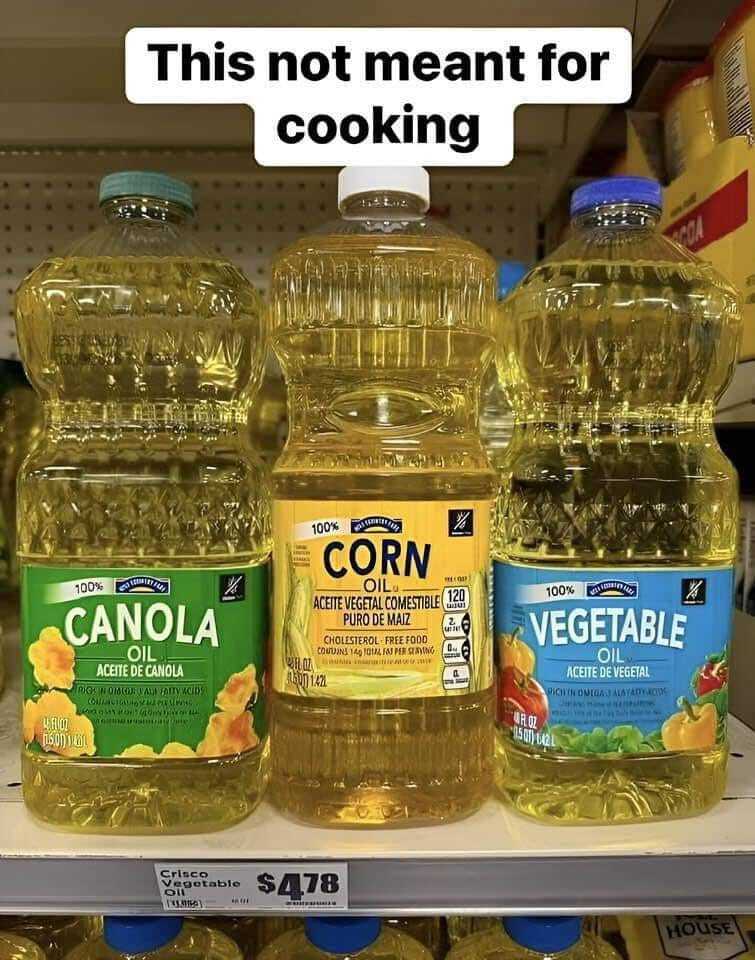ADVERTISEMENT
In the grocery store, it’s common to see oils like canola, corn, and vegetable oil on the shelves at affordable prices. While they are marketed as cooking oils, there’s a growing understanding that these types of oils may not be the best choice for your health, especially when used at high temperatures. Here’s a closer look at why these oils might not be the best option for cooking.
1. High Omega-6 Fatty Acid Content
Canola, corn, and vegetable oils are typically high in omega-6 fatty acids. While omega-6 is an essential fatty acid, the typical Western diet already includes a high amount of it. Excessive omega-6 intake can lead to an imbalance with omega-3s, promoting inflammation in the body. This imbalance has been linked to several health issues, including heart disease, obesity, and other inflammatory diseases.
2. Refined and Processed
These oils are heavily processed. To extract oil from corn, soy, or other vegetables, manufacturers use high heat and chemical solvents like hexane, a harsh industrial chemical. This refining process strips away the natural nutrients and antioxidants that might be present in raw oils, leaving behind an oil that is more refined but less nutritious.
3. Low Smoke Point
Canola, corn, and generic vegetable oils generally have a low to moderate smoke point, which is the temperature at which oil starts to burn and degrade. When oils reach their smoke point, they release harmful compounds, including free radicals and acrolein, which can be harmful to your health and create an unpleasant taste in food. Cooking with these oils at high temperatures, such as frying, can lead to the formation of these toxic compounds.
4. High in Trans Fats
Read more on next page
ADVERTISEMENT
ADVERTISEMENT




